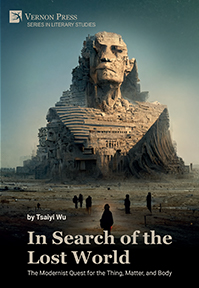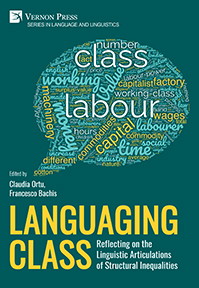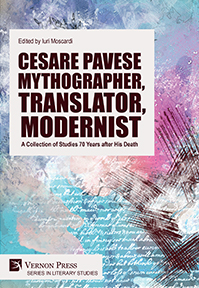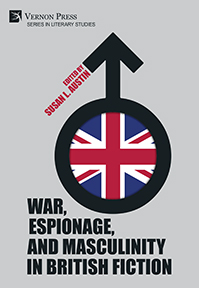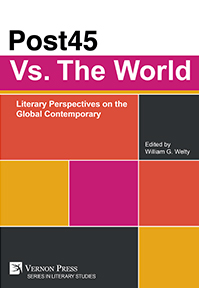Search
Browse
by Publication status
by Subject
Anthropology (26) Art (171) Business and Finance (38) Cognitive Science and Psychology (63) Communication and Journalism (51) Economics (116) Education (71) History (169) Human Geography (23) Interdisciplinary (43) Language and Linguistics (178) Law (16) Music Studies (18) Philosophy (222) Political Science and International Relations (127) Sociology (404) Statistics and Quantitative Methods (21)by Series
Series in Literary Studies (62) Series in Philosophy (57) Series in Education (49) Series in Sociology (42) Series in World History (31) Series in Politics (30) Bridging Languages and Scholarship (26) Series in Language and Linguistics (25) Cognitive Science and Psychology (20) Series in Philosophy of Religion (20) Series in American History (19) Series in Art (19) Critical Perspectives on Social Science (16) Series in Cinema and Culture (16) Curating and Interpreting Culture (15) Series on the History of Art (14) Series in Anthropology (13) Series in Critical Media Studies (13) Economics (13) Series in Business and Finance (12) Series in Music (12) Series in Performing Arts (9) Philosophy of Personalism (8) Series in Communication (8) Series in Law (8) Series in Economic Methodology (7) Series on Climate Change and Society (7) Classics in Economics (6) Series in Economic Development (6) Women's Studies (6) Philosophy of Forgiveness (5) Series in Built Environment (5) Series in Economic History (5) Series in Philosophy of Science (4) Series in Social Equality and Justice (4) Series on the History of Science (4) Serie en Sociología (3) Series in Contemporary History (3) Series in Creative Writing Studies (3) Series in Design (3) The Interdisciplinary Built Environment (3) Series in Heritage Studies (2) Series in Innovation Studies (2) Serie en Ciencias Políticas (1) Serie en Comunicación y Medios (1) Serie en Entorno Construido (1) Serie en Estudios Culturales (1) Serie En Estudios Literarios (1) Serie en Filosofía (1) Serie en Música (1) Series in Classical Studies (1) Series in Economics of Technological Change (1) Series in Philosophy of Race (1) Series in Urban Studies (1)by Language
English Spanishby Author
Browsing with filters

In Search of the Lost World: The Modernist Quest for the Thing, Matter, and Body
Tsaiyi Wu, Shanghai Normal University
Availability: In stock
178pp. ¦ $29 £21 €24
From a historical perspective, the book studies how modernist artists, as the first generation who began to rethink intensively the legacy of German Idealism, sought to recreate the self so as to recreate their relationships with the material world. Theoretically, the book converses with the topical de-anthropocentric interests in the 21st century and proposes that the artist may escape human-centeredness through the transformation of the self. Part One, “Artificiality,” begins the discussion with the fin-de-siècle cult of artificiality, where artists such as Theophile Gautier, Charles Baudelaire, J.K. Huysmans, and Gustave Moreau dedicate themselves to love stony sphinxes, marble statues, and inorganic appearances. The cult of artificiality is a mischievous subversion to Hegel’s maxim that inwardness is superior to matter. In the cult of artificiality, art is superior to nature, though art is no longer defined as immaterial imagination but rather reconfigured as mysterious appearances that defy signification and subjugate the feeling heart. Part Two, “Auto-philosophical Fiction,” discusses the genre where the artists (Marcel Proust, Walter Pater, and Virginia Woolf) set philosophical ideas in the laboratory of their lives and therefore translate their aesthetic ideals—the way they wish to relate to the world—into a journey of self-examination and self-cultivation. In Pater’s novel 'Marius the Epicurean', the hero explores how a philosophical percept may be translated into sentiments and actions, demonstrating that literature is a unique approach to truth as it renders theory into a transformative experience. Exploring the latest findings of empiricist psychology, the artists seek to escape the Kantian trap by cultivating their powers of reception and to register passing thoughts and sensations. Together, the book argues that de-anthropocentrism cannot be predicated upon a metaphysics that presumes universal subjectivity but must be a form of aesthetic inquiry that recreates the self in order to recreate our relationships with the world.
Languaging Class: Reflecting on the Linguistic Articulations of Structural Inequalities
Edited by
Claudia Ortu, University of Cagliari, Italy
and Francesco Bachis, University of Cagliari, Italy
Availability: In stock
192pp. ¦ $85 £70 €80
This volume explores the issue of social class from the point of view of its linguistic articulations. Indeed, as Machin and Richardson (2008) stated, “discourses may be variously approached as (often simultaneously) reflecting class structures, as a site of class inequalities, as expressive of class identities or class consciousness and/or as a constituent part of more performative class action.” Some of the contributions that make up the volume were presented at a conference held at Cagliari University, Italy, in 2017 and responded to the call for analyses on the role of language in reflecting, maintaining, enacting, and inculcating ideas on social class in literary and non-literary texts and discourses in any cultural or linguistic setting. This volume aspires to encourage scholars in disciplines and academic fields that have shied away from reflections on structural inequalities in favor of studies on ethnic, gender, and cultural identities in the last decades to take back on board the concept of social class and to engage with it in a novel way. The variety of approaches – ranging from the more traditional sociolinguistic one, anthropology, to literary and discourse studies – and cultural settings – with case studies coming from 3 continents – represented in the chapters show that social class is a productive and illuminating concept for trying to (re)make sense of social reproduction and change.
Cesare Pavese Mythographer, Translator, Modernist: A Collection of Studies 70 Years after His Death
Edited by
Iuri Moscardi, The Graduate Center, CUNY
Availability: In stock
154pp. ¦ $67 £56 €63
This volume on Cesare Pavese is published on the 72nd anniversary of his death, and it aims to explore new perspectives to study this relevant intellectual. The multifaceted personality of Cesare Pavese took many different forms and allowed him to explore different aspects of literary production. He was a poet, a novelist, an essayist, a translator of some of the most important American writers of the 19th and 20th centuries. He also worked for 20 years at Einaudi Publishing House, where he became one of the most relevant figures of the company and the Italian literary and cultural scene between the 1930s and 1950s. This collection provides new perspectives of study by focusing on different aspects of his job and by analyzing the strong connections between his personal and professional life. It will appeal to graduate students and scholars in contemporary Italian literature.
War, Espionage, and Masculinity in British Fiction
Edited by
Susan L. Austin, Landmark College
Availability: In stock
200pp. ¦ $87 £72 €82
'War, Espionage, and Masculinity in British Fiction' explores the masculinities represented in British works spanning more than a century. Studies of Rudyard Kipling’s 'The Light That Failed' (1891) and Erskine Childer’s 'The Riddle of the Sands' (1903) investigate masculinities from before World War I, at the height of the British Empire. A discussion of R.C. Sherriff’s play 'Journey’s End' takes readers to the battlefields of World War I, where duty and the harsh realities of modern warfare require men to perform, perhaps to die, perhaps to be unmanned by shellshock. From there we see how Dorothy Sayers developed the character of Peter Wimsey as a model of masculinity, both strong and successful despite his own shellshock in the years between the world wars. Graham Greene’s The Heart of the Matter (1948) and The Quiet American (1955) show masculinities shaken and questioning their roles and their country’s after neither world war ended all wars and the Empire rapidly lost ground. Two chapters on 'The Innocent' (1990), Ian McEwan’s fictional account of a real collaboration between Great Britain and the United States to build a tunnel that would allow them to spy on the Soviet Union, dig deeply into the 1950’s Cold War to examine the fictional masculinity of the British protagonist and the real world and fictional masculinities projected by the countries involved. Explorations of Ian Fleming’s 'Casino Royale' (1953) and 'The Living Daylights' (1962) continue the Cold War theme. Discussion of the latter film shows a confident, infallible masculinity, optimistic at the prospect of glasnost and the potential end of Cold War hostilities. John le Carré’s 'The Night Manager' (1993) and its television adaptation take espionage past the Cold War. The final chapter on Ian McEwan’s 'Saturday' (2005) shows one man’s reaction to 9/11.
Post45 Vs. The World: Literary Perspectives on the Global Contemporary
Edited by
William G. Welty, Rutgers, The State University of New Jersey
Availability: In stock
165pp. ¦ $68 £57 €65
Much of the work done on the Post45 literary field carries an implicitly Americanist perspective. Even the name of the field suggests a certain literary history, with certain assumptions and blind spots about national spaces, identities, and histories. But what would Post45 look like when considered from outside of the United States? How do the current contours of the field exclude certain voices, either in the United States or elsewhere in the world? And how would such new perspectives shift the beginning and possible endpoint of that literary period? What new narratives of the contemporary emerge if we begin telling the story in a different year or from a different national or global perspective? This collection attempts to re-frame the discussions in Post45 by engaging with non-American writers, texts, and perspectives. Additionally, productive conversations emerge by attempting to think of canonical American writers like Mark Twain and Ishmael Reed from other national and global perspectives. The authors consider both the ways texts themselves as well as their reception histories approach and challenge our understandings of the contemporary. Ultimately, the collection interrogates prevailing narratives of history, culture, identity, and space within the Post45 field. In so doing, it re-considers the historical periodization of the field, which currently covers approximately 75 years of literary history. The resulting essays thus work towards a new intertwined narrative about what defines the contemporary and how national and global literatures fit into that moment of world history.

